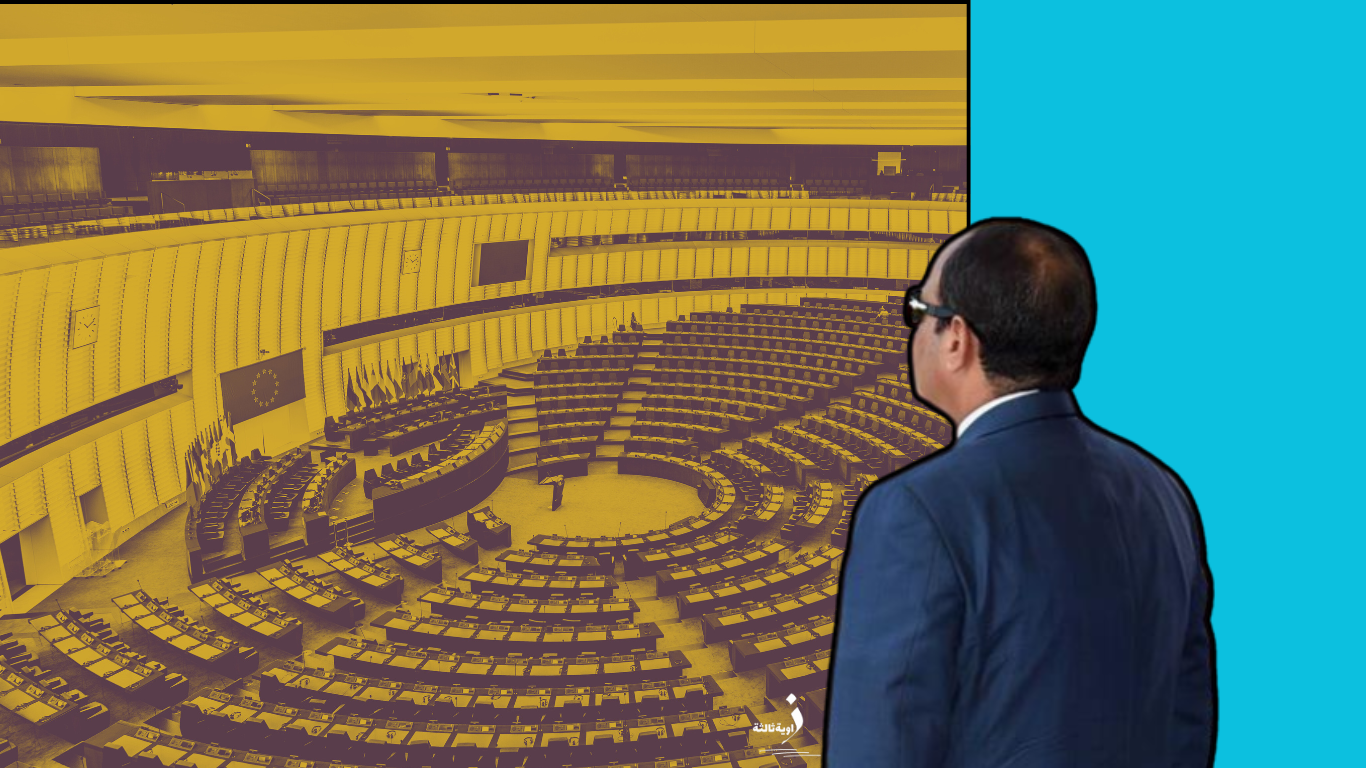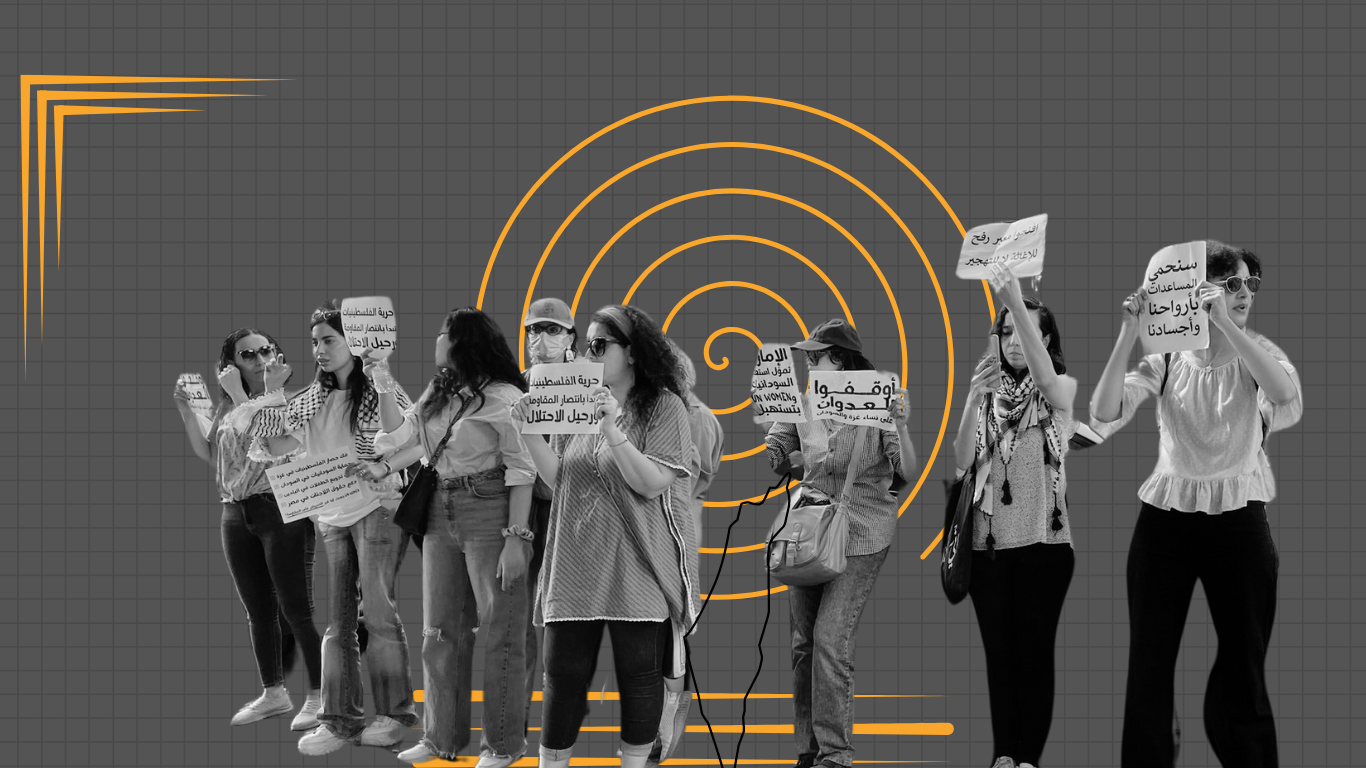Since the beginning of the current academic year, we have not seen the teacher face-to-face; they have contented themselves with sending us videos that we watch online. Despite our awareness that the videos were recorded several years ago, we are compelled to watch them because we have no other option for receiving our lessons. However, the professor at Cairo University does not miss a lecture for the “credit hours” students, as they pay significant fees and, therefore, receive all the attention. This is what a student at the Faculty of Fine Arts said to “Zawia3.”
The student states, “The distinction is very clear, and education has become class-based, causing many students to switch to the ‘credit hours’ system, despite its high cost. A significant percentage of students join the workforce to help their families cover expenses, but they inevitably engage in exhausting jobs that affect their study commitment.”
She adds, “One of my peers works on a motorcycle delivering orders for a ‘delivery’ restaurant for 12 hours a day. He says he earns no less than 250 Egyptian pounds daily (8.09 dollars), which makes him consider quitting education, claiming that he won’t earn half of this amount upon graduation.”
What does the credit system mean?

Many of the Egyptian government universities have been implementing the “credit hours” education system for years, claiming to keep up with the scientific development in Western universities while maintaining the traditional system for those who do not have the financial capacity to pay the fees.
However, the new system completely replaces the traditional one, turning education into a class-based or capitalist system, even though the curricula are the same in both systems.
Students in the credit hours system study some elective courses in addition to the core courses. The system also allows retaking failed courses for an additional fee.
The system is highly flexible, allowing universities to determine the price according to their circumstances and priorities. Thus, the cost per credit hour varies from one university to another.
Each university determines the cost of registration hours, either on its official website or through social media accounts. However, the prices per hour in this system have become “astronomical” at government universities, competing with private universities, and are accessible only to the affluent.
According to our survey of announced fees, the fees for the Faculty of Engineering at Cairo University are around 100,000 Egyptian pounds (3,237 dollars) annually. The international student fees for undergraduate studies are 5,000 US dollars per year, and a registration fee of 1,500 US dollars must be paid. The price per credit hour in the spring and fall semesters is about 1,300 pounds (42.6 dollars), and in the summer semester, it is around 1,600 pounds (51.78 dollars), in addition to a 900-pound (29.13 dollars) administrative fee.
Lamiaa, a student at the Faculty of Agriculture studying under the credit hours system, says that the system is bad, with no significant difference compared to the traditional system, except for studying in English.
She adds, “Some colleges pay more attention to ‘credit’ students, but overall, the differences are slight despite the exorbitant fees in the credit hours system.”
On the other hand, Mostafa Qabeesi, a student at the Faculty of Pharmacy, prefers the credit hours education system, saying, “The credit system is better; it makes studying easier than the old system. It gives me complete freedom to choose the courses I want to study during the term, and I can divide them into three study sessions throughout the year.”
However, according to him, the only drawback of this educational system is the high prices compared to the general system. “Personally, I pay about 60,000 pounds annually (1,941.84 dollars),” while Salma, a student at the Faculty of Fine Arts, shares her opinion, believing that the credit hours system is better than the free system due to the low number of students. However, this policy creates class differences between colleagues.
Salma transferred from the general free system to the credit hours system at the beginning of the last academic year due to her inability to cope with hundreds of students in one lecture hall. She says, “I moved to be treated well; the students are few, and the lecture venue is air-conditioned and well-ventilated. We also study in English, which I prefer over Arabic.” Salma, who points out that the minimum tuition in her college under the new system is no less than 50,000 pounds (1,618.20 dollars) annually, regrets her decision to transfer. According to her description, there are no major negatives to the system, but the only problem lies in the increasing numbers of students, leading to overcrowding, to the extent that they decided to teach some courses “online.”
There is another accusation against universities that they automatically expel large numbers of students on the pretext of not attending. Ahmed, a business administration student at the University of Alexandria, says the reason is “greed.” The expelled student will be forced to pay the fees again, thus increasing profits.
However, an administrator at the university denies the accusation entirely, saying: The university does not expel a student unless after warning him three times, and this is entirely untrue. However, some students “indulge and think they will get the certificate with their money.”
Education: Service or Right?

Despite the financial returns of credit-based education, problems have emerged in its implementation, notably the clear distinction between paying and non-paying students, even though the curricula are mostly uniform across colleges.
The system has been accused of perpetuating class divisions and creating economically, socially, and intellectually disparate groups, deepening discrimination among students based on their economic capacity.
Kamal Mughith, an expert at the National Center for Educational Research, told “Zawia3,” “The state views education as a service, not a right. Consequently, it has transformed it into an investment opportunity rather than a platform for creativity and enlightenment.”
He adds, “Free education achieved two crucial social elements for a healthy society. The first is citizenship, as free education brought together the rich and the poor, the Muslim and the Christian.
The second element is equal opportunity, ensuring justice. If we accept the factor of academic excellence, the outstanding student should secure an excellent job regardless of their poverty or wealth. However, with two types of education—one for the poor and another for the rich—this means institutionalizing the principle of unequal opportunities, diminishing job prospects for students of the lower class, while those with private and paid education enjoy an advantage.
He says, “There is a circumvention of the concept of free education guaranteed by the constitution, starting since Sadat’s rule and completed during Mubarak’s era with the issuance of Law 12 of 2009, approving the establishment of private universities under the name of private universities. According to the law, these universities are not meant for “profit” but work to reinvest their acquired financial resources for self-improvement.
Indeed, four universities were established at that time, representing the first appearance of private universities in Egypt when Egyptians gathered to build the private university in 1908, which later became Cairo University. The situation evolved to establish open education, which was insufficient to accommodate the aspirations of students. The state continued to neglect spending on higher education, with the absence of a national project, leading to the current stage. The state opens branches for private education under various names.”
According to his description, education is not a commodity subject to monetary value escalation but a mandatory service provided by the state. Therefore, there is no justification for increasing fees for government universities and insisting that they are still free. The number of private universities has reached 20 this year. According to the Ministry of Higher Education, they accept low coordination percentages for high school students, ranging between 55-80% in faculties of medicine and health sciences, with fees starting at 16,000 pounds ($517.79) and possibly exceeding 100,000 in some faculties.
In conclusion, the state of education in Egypt is lamentable. This is evident in international standards and indicators measuring various elements of education, such as quality, accessibility, and the availability of technological resources. Unfortunately, Egypt obtains very low rankings in these international tables compared to many neighboring Arab countries, which surpassed us recently (according to recent indicators for this year, Mansoura University, ranking first in terms of the quality of education in the ranking of Egyptian universities, occupies the 102nd place globally, while Cairo University ranks 178th globally. In terms of the overall quality of education, Qatar ranked first in the Arab world, according to recent indicators, while Egypt ranked 13th).
Educational Conundrum
The government has implemented several measures to shift the mindset of Egyptian students and make them more accepting of the idea of abolishing free education, as happened in 2014 when the Specialized Council for Education and Scientific Research presented a package of proposals for education development policies. The most prominent and controversial among them was a policy aimed at reducing government spending on supporting higher education by linking it to the grades obtained by students in secondary school. This system poses a real threat to the right to free higher education that Egyptians have enjoyed since the 1940s, rooted in the early days of the republic.
According to Tarek Shawki, the president of the council at the time, the new system aimed to ensure a contribution of about 70% of tuition fees in the form of grants for high school students who scored 70% or more. Students scoring below 70% are compelled to pay the majority of the tuition fees, while those who fail any subjects must pay the full tuition. Shawki stated that the new policy aimed to change the mentality of Egyptians regarding free education, asserting that “free education, as an acquired right, should come to an end.”
Contrarily, at the end of the last academic year, the government denied in a statement its intention to abolish free higher education, confirming its commitment to developing the higher education sector. This was in response to rumors that the government planned to abolish free education in public universities. The Egyptian Cabinet, in its statement, affirmed that there is “no compromise” on the free education in all Egyptian universities, considering it a “right guaranteed by the constitution and the law for all Egyptians.”
The budget allocated for higher education in the fiscal year 2022-2023 is estimated at about 85 billion pounds, including expansion in private universities, as well as the development of public education. However, the escalating and continuous complaints from users and relatives of students in “free” higher education indicate that higher education has become a “business for those who can afford it.”











